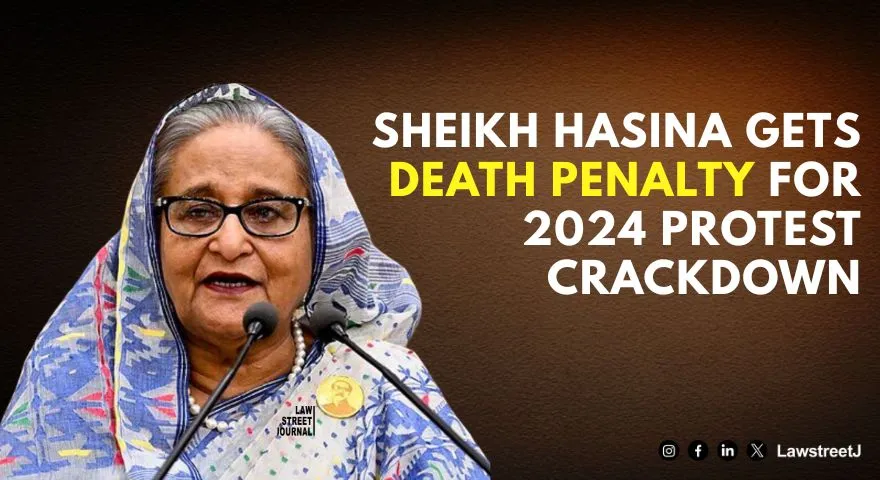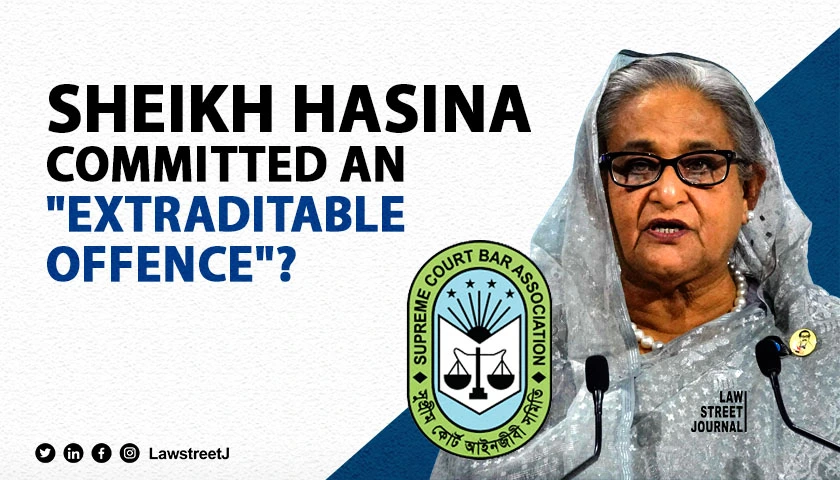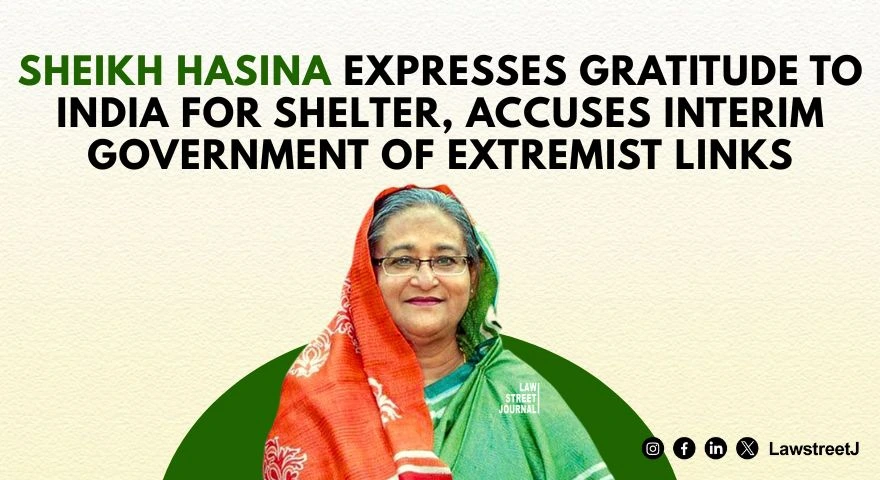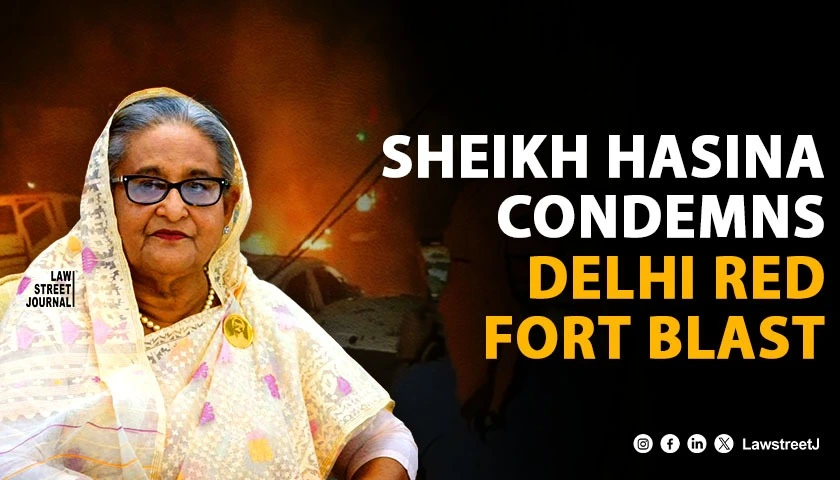Bangladesh: Bangladesh’s International Crimes Tribunal (ICT) on November 17, 2025, issued a landmark judgment sentencing former Prime Minister Sheikh Hasina to death for crimes against humanity linked to the July–August 2024 student-led protests. The ruling, delivered after months of proceedings, marks one of the most significant legal decisions in Bangladesh’s contemporary political history and has triggered extensive national security measures ahead of the country’s upcoming general elections.
The International Crimes Tribunal, functioning under the International Crimes (Tribunals) Act, 1973, conducted hearings over several months before delivering its verdict. The three-judge bench, headed by Justice Md Golam Mortuza Majumder, found Sheikh Hasina guilty on five separate counts of crimes against humanity. These charges include mass killings, enforced disappearances, acts of torture, and suppression of civilian dissent during the state response to the 2024 student uprising.
According to the tribunal’s findings, the protests—initially sparked by allegations involving corruption, failures in the education system, and rising authoritarian tendencies—were met with a forceful government crackdown. Tribunal documents state that approximately 1,400 civilians, largely students, were killed during the operations, while thousands more sustained injuries or were detained nationwide.
The judgment records that Hasina was tried in absentia after declining to return to Bangladesh for trial. The tribunal held her responsible under the doctrine of command responsibility, citing official communications and directives that linked her to orders authorising the deployment of paramilitary personnel and the use of lethal force against unarmed protesters. The bench stated that these materials formed a substantial part of the evidentiary chain supporting the conviction.
The court also emphasised that procedural standards were maintained throughout the trial. The ruling notes adherence to due process principles, including public hearings, documentation of evidence, and judicial independence, consistent with domestic law and international norms referenced under the ICT Act.
Co-Accused and Sentencing Outcomes
Along with the former Prime Minister, two senior officials from her administration were convicted in the same case. Former Home Minister Asaduzzaman Khan Kamal, currently untraceable, received a death sentence in absentia. The tribunal cited his role in operational planning and oversight during the 2024 crackdown as the basis for the conviction.
Former Inspector General of Police Chowdhury Abdullah Al-Mamun faced separate treatment due to his cooperation with investigators. Mamun pleaded guilty during the proceedings and provided testimony detailing decision-making structures, command chains, and deployment strategies implemented during the protests. His statements supported the prosecution in establishing the flow of directives from central authorities to on-ground forces.
Based on Section 20A of the ICT Act, which allows reduced sentencing for individuals assisting the judicial process, Mamun was sentenced to five years in prison. The tribunal stated that while he held an important position during the events in question, his cooperation and disclosure of operational details constituted significant mitigating factors.
The full judgment spans 453 pages and includes the tribunal’s legal reasoning, assessment of evidence, and summaries of witness accounts. Officials indicated that segments of the verdict were still being read publicly at the time of reporting. The tribunal maintained that its mandate allowed it to examine crimes committed beyond the original scope of the 1971 war, as long as they fell within the definitions established under the enabling legislation.
National Security and Political Implications
Following the announcement of the verdict, Bangladesh deployed enhanced security personnel across Dhaka and several major urban centres. Authorities issued shoot-at-sight directives in sensitive zones to prevent the possibility of violent demonstrations or retaliatory actions. Internet services were temporarily restricted in select districts to limit the spread of misinformation and the organisation of large gatherings.
The timing of the ruling has generated significant political attention, occurring only weeks before the scheduled national elections. Government sources placed all administrative agencies on high alert, while electoral bodies prepared contingency plans in anticipation of unrest. The Awami League, the party formerly led by Hasina, had not released an official statement at the time of publication. Opposition groups called for peaceful demonstrations and urged international bodies to observe the evolving situation.
Legal analysts have noted that the decision may influence future accountability mechanisms concerning state-led actions. The tribunal’s application of existing legal provisions to a contemporary incident, rather than historical war-era crimes, may serve as a reference point for other jurisdictions considering inquiries into state violence or human rights violations.
In a statement issued through her legal representatives, Sheikh Hasina denied all charges and labelled the case politically motivated. She claimed that the proceedings lacked neutrality and described the decision as “rigged.” The tribunal, however, stated that its ruling relied exclusively on verified evidence, witness transcripts, and forensic records submitted during the hearings.
Authorities are expected to maintain heightened security until the political situation stabilises. Observers note that international responses, diplomatic engagements, and regional security considerations may shape the next phase of developments surrounding the case.










